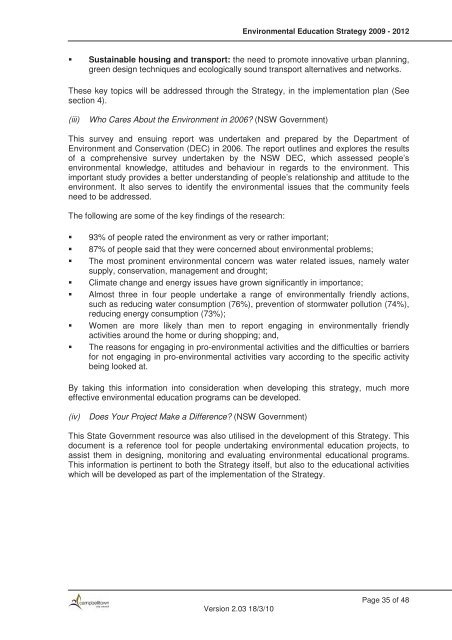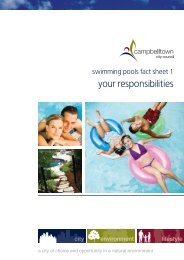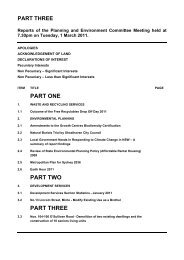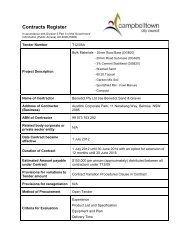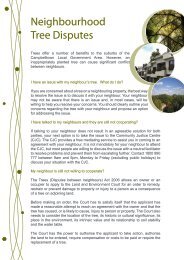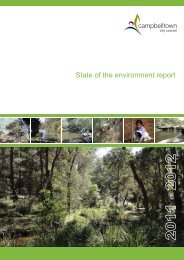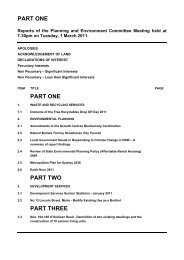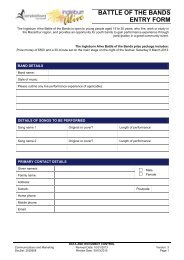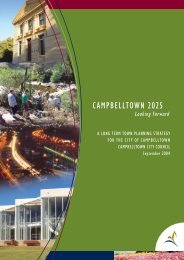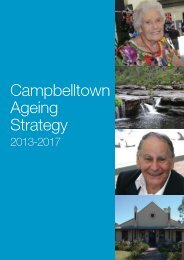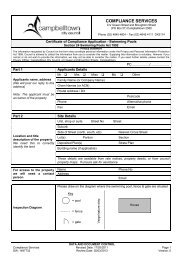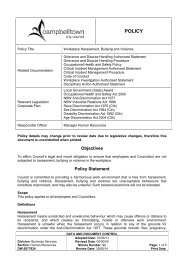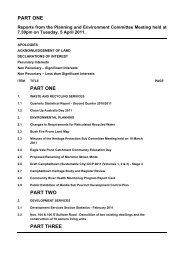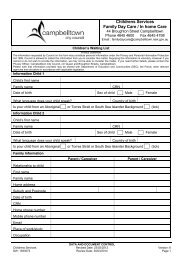Environmental Education Strategy - Campbelltown City Council ...
Environmental Education Strategy - Campbelltown City Council ...
Environmental Education Strategy - Campbelltown City Council ...
- No tags were found...
You also want an ePaper? Increase the reach of your titles
YUMPU automatically turns print PDFs into web optimized ePapers that Google loves.
<strong>Environmental</strong> <strong>Education</strong> <strong>Strategy</strong> 2009 - 2012Sustainable housing and transport: the need to promote innovative urban planning,green design techniques and ecologically sound transport alternatives and networks.These key topics will be addressed through the <strong>Strategy</strong>, in the implementation plan (Seesection 4).(iii)Who Cares About the Environment in 2006? (NSW Government)This survey and ensuing report was undertaken and prepared by the Department ofEnvironment and Conservation (DEC) in 2006. The report outlines and explores the resultsof a comprehensive survey undertaken by the NSW DEC, which assessed people’senvironmental knowledge, attitudes and behaviour in regards to the environment. Thisimportant study provides a better understanding of people’s relationship and attitude to theenvironment. It also serves to identify the environmental issues that the community feelsneed to be addressed.The following are some of the key findings of the research:93% of people rated the environment as very or rather important;87% of people said that they were concerned about environmental problems;The most prominent environmental concern was water related issues, namely watersupply, conservation, management and drought;Climate change and energy issues have grown significantly in importance;Almost three in four people undertake a range of environmentally friendly actions,such as reducing water consumption (76%), prevention of stormwater pollution (74%),reducing energy consumption (73%);Women are more likely than men to report engaging in environmentally friendlyactivities around the home or during shopping; and,The reasons for engaging in pro-environmental activities and the difficulties or barriersfor not engaging in pro-environmental activities vary according to the specific activitybeing looked at.By taking this information into consideration when developing this strategy, much moreeffective environmental education programs can be developed.(iv)Does Your Project Make a Difference? (NSW Government)This State Government resource was also utilised in the development of this <strong>Strategy</strong>. Thisdocument is a reference tool for people undertaking environmental education projects, toassist them in designing, monitoring and evaluating environmental educational programs.This information is pertinent to both the <strong>Strategy</strong> itself, but also to the educational activitieswhich will be developed as part of the implementation of the <strong>Strategy</strong>.Version 2.03 18/3/10Page 35 of 48


